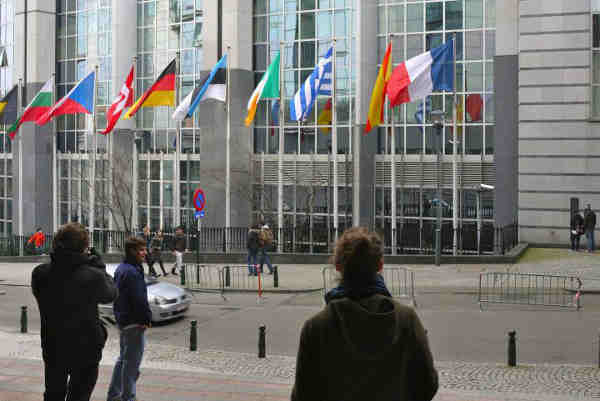How to Mitigate the Impact of Brexit

The United Kingdom, Europe and the world woke up this morning to a new reality. With the majority of the population voting to leave the European Union, Britain has started its road to separation.
With sterling plummeting to its lowest level in 31 years and the stock market falling sharply, what lies ahead?
What will be the impact on companies and markets? What can be done to mitigate potential repercussions that Brexit will inevitably bring? Even more importantly, how can companies adapt to the important changes coming our way and identify new opportunities?
Market intelligence company Frost & Sullivan is working to assess, review and plan strategically for the future to create a positive impact on the economy and society.
As we all know Brexit is likely to take a minimum of two years to materialize, with the process for withdrawal from the EU expected to start when Article 50 of the Treaty of Lisbon is triggered.
Once the intention of separation is formalized, Britain will begin to negotiate withdrawal terms with EU member states on issues such as trade tariffs and the movement of UK and EU citizens, in effect laying the ground for its redefined relationship with the EU.
“It is important to note that during this interim period, Britain will still be subject to existing EU treaties and laws, but will be barred from decision making processes. Therefore, existing regulations are likely to continue until negotiations are completed,” explains Frost & Sullivan senior partner and managing director for Europe Sarwant Singh.
“However, there is uncertainty regarding the path ahead,” adds Mr. Singh. “This could trigger a dip in business sentiment and delays in FDI (Foreign Direct Investments). On a positive note though, Brexit could pave the way for Britain to expand trade relations with the rest of the world beyond EU, and this would especially help mitigate risks arising from excessive reliance on one trading partner.”
Looking at the UK financial sector, Frost & Sullivan senior partner Gary Jeffery admits that “there may be risks if financial institutions lose passporting rights which presently allow for the sales of services across EU states without the need to secure local regulator approval.”
Britain could also see the departure of automotive plants from its shores if manufacturers cease to enjoy the benefits of tariff free trade with the EU. Currency volatility could persist in the medium term given the uncertainty of the path ahead and if the devaluation sustains, we could see exports becoming more attractive, therefore benefitting UK based manufacturers.
Although the results are a cause for concern, according to Frost & Sullivan, one must remember that they also herald the mark of a new beginning for the UK which will be influenced by a strong government policy and the success of negotiations with the EU and the rest of the world. We will have to wait and watch to see how the nation’s growth story unfolds.
Photo / Video courtesy: Frost & Sullivan





